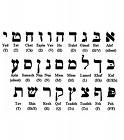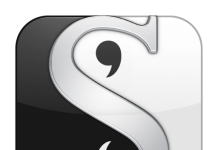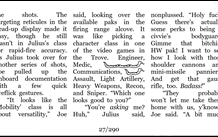 Surprising as you might find it, despite the high percentage of readers and the great popularity of books among Hebrew speakers, there are no e-Books in Hebrew (He-Books). At least there were none until recently. It is rather incredible with Israelis known as gadget lovers and technology early adopters but that’s how it is.
Surprising as you might find it, despite the high percentage of readers and the great popularity of books among Hebrew speakers, there are no e-Books in Hebrew (He-Books). At least there were none until recently. It is rather incredible with Israelis known as gadget lovers and technology early adopters but that’s how it is.
You can see a few Sony e-readers here and there, with people reading English and Russian. I personally know about two or three Kindles that immigrated to the holy land. A group of MA graduates started to import the eSlick Reader and the Ukrainian PocketBook Reader is popular among Russian speakers. But content in Hebrew – nada! There are a few exceptions like some religious content as iPhone applications and even for Palm and Windows Mobile. However, nothing like commercially available fiction novels, non-fiction, poetry, best sellers or long tail. Free e-Books, highly priced or low priced ones, price wars, format wars, intentions to dominate the market? Nothing of the sort. The market is yet to be created.
But now all this belongs to the past. Our store and project, named “Mendele Mocher-Sfarim Bareshet” (Hebrew for “Mendele the Book-Seller on the Net”) after the pseudonym of Sholem Yakov Abramovich, one of the founders of modern Hebrew literature, is on the air for a couple of months now and provides, for the first time ever, Hebrew e-Books (He-Books) , strictly compliant with the IDPF ePub standard.
There are several free He-Books. Others, priced by the publishers, range from $6 to $9 approximately and one can download a free sample that includes a few chapters of each and every one of the He-Books.
Now don’t think it was easy. None of the ways you are familiar with to covert PDF to ePub works for Hebrew. What’s more, given no Hebrew ePub books in existence, no device or software vendor even pretended to support them. What comes first than? The chicken or the egg?
All PDF to ePub and PDF to HTML converters we could find gave terrible results. From outputting gibberish to showing LTR instead of RTL in various creative mixtures. Even InDesign’s results are not acceptable.
On the other hand, as a team, we have significant experience working with international standards. We were involved in digitizing the printing and publishing industry for many years including in the creation and improvement of the JDF and AdSML standards. So, we dived into the information available and started building our own procedure. It took us about a year to be able to produce high quality ePub files from ready to print PDFs (the most common input we currently get) within a repetitive predictable commercially viable procedure.
Of course we created standard compliant Hebrew ePub files long before that and looked for a manner to read them. How disappointed we were to learn that when a device or software manufacturer declares that they “support ePub” it does not necessarily mean that they fully support every aspect of the standard. ADE – Adobe Digital Editions does not even access Hebrew fonts present in the OS (be it OS X or Windows). As a result, all you see are question marks. If a Hebrew font is embedded in the ePub file, ADE shows the text but ignores RTL direction and right alignment so the text appears unreadable. The letters within the words are the other way around. And when we asked, Adobe replied that RTL is not on their road map and they have no knowledge of when it will be. With Sony reader the phenomena is similar (only that we did not get this reply). And these are two of the greatest ePub supporters.
Salvation came from the best reading software in the world. Although Lexcycle specify clearly “no RTL support”, Stanza for iPhone does read Hebrew ePub files and it does it beautifully. We still had to improve our files for that, but hey, that is what we are here for. One slight problem did exist at the time. The iPhone was not sold officially in Israel. Estimations mentioned up to 100,000 jail-broken unlocked devices but that is really a very small number to find a whole market of a reading public in. We however, proceeded and still do with the idea that as ePub is by now the declared and the De-Facto standard, we will see more and more devices supporting ePub to a fuller extent.
Meanwhile, by the time we launched our site, Apple signed with the three major cellular providers in Israel. The information published about those deals indicates that we can expect close to a million iPhones sold within the next three years. In Israeli terms this is a huge number. Some of those iPhone buyers, I hope, will be book lovers.
Right now our Hebrew ePub He-Books have been tested successfully with:
Apple iPhone and iPod Touch using Stanza
PocketBook 360, 301, 302
Windows using FBReader, Azardi, Calibre
Mac OS X using Calibre
Linux using FBReader
Windows, Mac OS X and Linux using Firefox with EPUBReader Add-On.
Expected soon on:
Apple iPad using Stanza
Android devices using Aldiko
Android devices using EPUBReader for Firefox Mobile
Windows Mobile devices using EPUBReader for Firefox Mobile
Maemo devices (N810, N900) using EPUBReader for Firefox Mobile
We use Social-DRM with our He-Books. Every He-Book is personally created for the specific buyer, on the fly, once the payment transaction is approved (including if the purchase sum is 0$ for free He-Books). A nice personal Ex-Libris stamp is added to the He-Book along with some hidden data. While we do take care to get the buyer’s awareness and consent for the publisher’s peace of mind, we really see the Ex-Libris stamp more as an attractive personalization feature which will grow even more personal in the future. We all know that there is no DRM which is not breakable. The real intellectual property protection is and always was composed of three factors: ease of purchase; ease of use; a fair price. We believe we are within range with these factors and we are constantly working to improve them.
We are still advancing slowly in getting books in. Digital publishing rights are an issue. Everyone is just learning how to handle this and while there is some buzz around e-books, there is still a long way to go.
Perhaps the best sign that we are on the right track is that competition is coming along. We expect a new major player to rock the local He-Books market soon. Don’t ask me how soon is soon. I hear that for several months already. I guess we’ll have kind of our own little ‘Amazon’ to compete with… the He-Books market is finally becoming very interesting. 2010, it is about time it would… and by the way, investors are welcome. Growth potential is huge. Some growth directions are obvious. Others, are obviously not for this space.
Who are we? See our LinkedIn profiles:
Carmel Ravid, Henry Harel, Israel Viente, Yaron Goldstein.

































What about the Nook and the Kindle? (OK, for the Kindle you need to convert the ePub files to Mobi files, say using Calibre).
The Nook does not support RTL.
Hebrew ePub files converted to mobi result in gibberish.
If you read Hebrew, you are invited to follow the support page of our site for a frequently updated list of devices supporting Hebrew ePub files and of course for new HeBooks.
I would like to know if you have the book Alice in Wonderland in Hebrew.
Thanks,
Doron
Not yet. Is there any updated translation you’d like to suggest?
I M planning to buy an eReader next month in the US.
I read both English-Hebrew (Heblish-Englew).
I understand from you that the only product able to do the job now is – PocketBook 360, 301, 302.
Anything else?
Thanks & Shana Tova
Moshik
Chapeau for the Mendele online project.
Right now, the PocketBook is your best option for an eInk device that supports Hebrew ePub files. Nevertheless, you might what to consider an iPad which also supports Hebrew, does many other things and is ready for the upcoming enhanced ebooks. There are pros and cons to both options and a lot has already been written about it. Depending on when you’ll be in the US, there might be many new models as usual before the holidays. You should be sensible with the Hebrew ePub support and I’d suggest you carry a few files from our site. With and without punctuation, drawings, color drawings, footnotes. Then try the device you plan to buy.
Good luck and a happy new year.
Yaron
I prefer to do my reading on e-ink displays, it doesn’t hurt my eyes as much. However, I found this library http://www.archive.org/details/nationalyiddishbookcenter and discovered that reading .pdfs on a kindle wasn’t ideal.
Do you offer a conversion service?
is there a EPUBreader for google-chrome?
To BenYitzhak: We do offer conversion services. Please see http://mendele.co.il/?page_id=1048.
We only create ePub files which are not readable on a Kindle. The Kindle (and Amazon) does not support RTL and cannot read Hebrew.
If you own a Kindle, you will have to settle for pdf’s. An iOS device would be more versatile.
To Eyal Amit: As far as I know there is no such extension to Chrome. If anyone knows otherwise, please let me know. Thanks.
Hi
I am looking to buy an E-reader, I read English and Hebrew.
My question is what should i get? Nook from Barns and noble? Kindle from amazon? or something else
Tnx
For Hebrew supporting devices and software, please see here:
http://mendele.co.il/?cat=1
Happy reading,
Hebrew eBooks at Mendele HeBooks
http://mendele.co.il/?cat=1
this site is all in Hebrew. Is there an english site that gives the latest updates for Hebrew enabled Ereaders?
To Lev: Please review the thread “eReader for the Hebrew reader” at MobileRead forums:
http://www.mobileread.com/forums/showthread.php?t=105910
It contains a list of the latest applications and devices that support Hebrew (and a list of those that doesn’t…) with screen captures and some feedback from users.
With the new nook color are the hebrew ebooks readable?
The Nook color is Android based. You can see links to Hebrew supporting Android apps in our site. Alas, you need to “root” the device in order to enable installing Android market apps. We did not check this and cannot recommend the procedure. You van find information, view and advise by googleing “root nook color”.
Good luck and please update with the results if you do try this.
Yaron
I would like to by books in Hebrew, to download on my computer.
Do you have a catalogue ? Science fiction ? others?
thanks
You can see our catalog, view by category and search books at:
http://mendele.co.il/?page_id=3
For help see our FAQ:
http://mendele.co.il/?cat=483
What are the ebook readers currently available?
Leya,
Please see details about devices here:
http://mendele.co.il/?page_id=6117
and here:
http://www.mobileread.com/forums/showthread.php?t=105910
Hi,
My daughter, 12, is vision impaired. She has to enlarge all her books to double its size, or use a magnifier. If I could get her ebooks, that would be fantastic, since you can enlarge them as much as you want on a screen. She has her own laptop. I’m looking for kids’ books of the Charedi genre. There is a famous series called Yaldei Shai by Menucha Fuchs, or Esrim Ve’echad B’bayit Echad. Can you digitize these? I can give you a detailed list of books that I would want if that is possible.
Thanks so much.
In case this hasn’t been posted yet – there is a smart and relatively easy way of converting .epub ebooks in Hebrew into Kindle format; for all details, see
http://kneidlach.info/
As a test, I downloaded the free Mendele Mokher Sforim book to my Nook Color, which I have only had for several days. I had the impression that the book would be readable on the Nook, but all I get are boxes. Are there Hebrew fonts available for the Nook, and can I switch between fonts easily? Also, would the Hebrew text show up in the right direction?Would I have to root the Nook first and then look for aps that would work on a full android? I am truly in the dark.
Avur ezratkhem, rav todot,
Victor
Please see instructions for nook within the reader’s guide in our site: http://mendele.co.il/?page_id=17178
Best.
Yaron
Hello to all team!
Maybe you can help me?
I just finished my book and on this occasion, I set up an online edition with my rabbi.
Our texts are in French (so with accents), and we sometimes use words in Hebrew.
I tried to convert my Word 2010 file (on pc) with “calibre” for my epub file, but to no avail! The Hebrew fonts are permanently replaced by X.
However, if I copy and paste these X on a Word document, I find again my Hebrew fonts.
Please, a little advice ….
Thank you and keep well!
Hello, do you know if the Tolino (German ereader) supports books i would download from your site? it has epub,
thanks
if u want Hebrew for kindle,
in “word” click “rtf” and justify right, then use “send to kindle” application (find on Amazon)
Hello this is a great service. Well done! I care for an elderly person who would like to read books in Hebrew. How do we set this up for him?
Just today I got an email from Steimatzky in Israel saying that they do not sell Hebrew books in electronic format. I own a Kobo ereader and download ebooks in Hungarian, Romanian, English and Spanish. I want very much to add Hebrew books to the list. Like to read Scandinavian police thrillers and good USA novels.
I prefer the ereaders because of the variable font size and built in dictionaries.
Thanks,
Gavriel
I would love to read a novel in Hebrew on my iPad or iPod. All your instructions are in Hebrew, and that is proving to be a barrier. ( I have less trouble reading fiction as I am stymied by the technical stuff) are there instructions in English anywhere?
How much would it cost to design and create a dedicated Hebrew text ebook reading device?